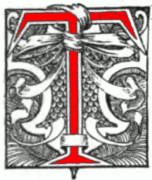
his conference takes the 150th anniversary of the funeral of David Livingstone to explore how we respond to history and cultural heritage today. On the 18th of April 1874 Livingstone was given what amounted to a state funeral in Westminster Abbey in London. He warranted such public acknowledgement that his funeral cortege was followed by the empty carriage of Queen Victoria, with Prime Minister Disreali and the Prince of Wales, Albert, in attendance in the Abbey.
Livingstone died at the end of April 1873 in present day Chipundu, Zambia. The subsequent transcontinental journey led by Jacob Wainwright and James Chuma to take his body to the coast to be returned to Britain became the stuff of legend and it captured the British imagination, cementing ideas of Livingstone as a martyr and Victorian hero. This conference uses the stories of Wainwright, Chuma and the many other people who worked with Livingstone to push against the continuing influence of colonial, hegemonic and hierarchical notions of museums. It also presents the narrative of Livingstone and his well publicised acquisition of objects of Central and Southern African origin as a starting point to explore how we respond to cultural heritage today.
We welcome proposals which question if there will ever be a way to fairly, humanely and equitably hold collections of colonially collected objects and presentations that explore how autonomy for diaspora, lived-experience and source communities can be embedded into the display of objects held in British museums. We also invite proposals which look at new ways to digitally create polysemiotic responses to objects and their representation that utilises digital technologies to work against the dehumanising and distancing effects of Western museum practice.
We accept proposals for papers, presentations and creative responses to our up coming conference in April at the National Library of Scotland and the David Livingstone Museum in Blantyre. The CFP deadline is the 29th February, 2024. The conference is free and supported by the University of Sheffield. For more information please visit the following link
Created 9 January 2024